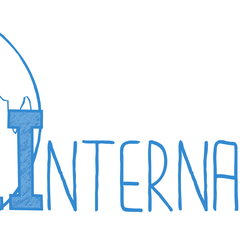
Fighting for LGBTQ+ Justice and #insulin4all
8 Jul 2020, 10:17 p.m. in #insulin4all USA, Global Stories by Quinn Leighton
I remember stepping up to the counter to check into an appointment with a new medical provider, when the woman at the desk asked me to step to the person to her right saying to her colleague, “Can you help this…” I had to finish the sentence for her, “person. I’m a person.”
I have often felt fear and uncertainty as a person living with Type 1 Diabetes: when I wake up in the middle of the night confused, reaching for my glucose tablets because my blood sugar reads between 40-50; when my spouse is driving me to the ER because I can’t stop throwing up or get my ketones down while I’m home sick with the flu; and of course the overwhelming financial burden we face daily and monthly in order to stay alive and as healthy as possible.
All of this is assuming we don’t face additional barriers such as discrimination, bias or mistreatment the moment we walk through the front door of a pharmacy, or a provider’s office simply based on who we are and how we show up in the world. For people in the LGBTQ+ community, such as myself, this fear is real and based on lived experience. I am queer, non-binary and married. I’m also white, and acutely aware that while my experiences have filled me with anxiety and have led at times to delaying medical care, I recognize I have not experienced medical racism in the way an LGBTQ+ person of color likely has.
Delaying care due to these fears as a queer or trans person is not uncommon in any medical setting, however if you delay care living with diabetes, it can lead to life-threatening complications or even worse. It’s imperative that LGBTQ+ people living with diabetes and other chronic illnesses have the security, affirmation and resources to access the care they need.
We also know that LGBTQ+ people, particularly transgender and non-binary people make less money, despite having the same, if not higher levels of education as their cisgender, heterosexual peers. Even with a patchwork system of employment protections across communities, states and now federally; discrimination in the workplace is still very real. Among LGBTQ+ people, cis-bisexual women and transgender people have particularly high rates of poverty at 29.4%.
Together we can work toward greater health equity, but collectively, we must recognize the disproportionately high impact of poverty, violence, prejudice, mental health issues, discrimination and fear that so many LGBTQ+ people face living with diabetes. We must recognize LGBTQ+ people often do not receive the same level of treatment or care that non-LGBTQ+ do, and LGBTQ+ people of color - particularly transgender women of color - are at the highest risk of discrimination, mistreatment and fatal violence.
Understanding these inequities is paramount in moving forward in advocacy for affordable and accessible insulin for everyone who needs it, particularly those most vulnerable to bias, mistreatment and discrimination. This includes healthcare policies protecting people with pre-existing conditions and protecting LGBTQ+ people from discrimination when accessing healthcare. Efforts to repeal or rollback protections put into place through plans such as the Affordable Care Act that seek to provide care to people who need it most, particularly during a pandemic, is simply cruel and will only result in more harm and negative health outcomes. Non-discrimination protections are critical in providing the care needed for so many LGBTQ+ people living with a pre-existing condition such as diabetes, who already face a gamut of uphill battles in other areas of daily life.
Queer and trans communities are formidable. They overcome extraordinary obstacles to gain economic self-sufficiency, put a roof over their heads, maintain their health in the best of conditions, and simply exist and live in this world. What I’ve really noticed most is the courage and resiliency to navigate these barriers while celebrating community and showing up as our true and whole selves.
I recognize structural and systemic change won’t happen easily or quickly; however, I am hopeful that the movements around us will support communities of color, particularly black and indigenous people fighting for their lives and Asian people under attack due to prejudice and misinformation surrounding the COVID-19 pandemic. I am hopeful people will elevate their support of LGBTQ+ people and those most vulnerable within our community while working to make insulin affordable so that no other person living with diabetes is forced to make life-threatening decisions. And it is my hope that this momentum of support will carry us forward toward justice.







